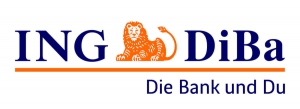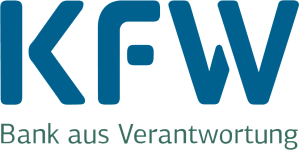Design and Facilitate Transformational Processes
IGOR Services
Individual Coaching
Individual Coaching
An initial conversation of 45 - 75 minutes provides a platform to get to know each other and to explore the topics brought along as well as long-term goals.
Our intention is to get an overall impression of the entire situation, including the anticipated changes required to achieve the desired results.
Based on this first conversation, a draft for a procedure appropriate to the main needs would be derived, including the length of the sessions and the total amount of time, fee, etc., among other things.
The first meeting is free of charge and serves as a basis for both parties to make a decision about a possible cooperation.
Team Development
Team Development
A brief analysis of the current team situation and an exchange of ideas about intended future scenarios is often the start of a collaboration. Impulses might be new business strategies, which require different areas of focus, faster delivery or other adaption efforts. Often an employee survey reveals topics like unclear roles and responsibilities or when key team members leave and the team needs to reorganize.
Activities for Team Development could be:
- a facilitated Team Workshop,
- introducing the Collegial Consultation format,
- Tools such as Insights Discovery, Extended Disc and Intercultural Development Inventory (IDI) allow team members to understand behavioral styles of individuals and to identify their strengths as a team.
Feel free to contact us to discuss your questions and find out which tools fit best to your request.
Organizational Development
Organizational Development
Intentions of the Gestalt - Organizational Consulting:
- Raising awareness of behaviors, structures and processes, which influence the performance of the organization as well as implementing effective methods to manifest desired changes.
- Identifying resistances within change projects and working creatively with them.
- Supporting leaders and team members, ensuring optimal learning for individuals and initiating a transformation process based on a learning organization.
Process Management with Scrum/Agile
The focus of the Scrum framework is on the actual collaboration within a team and between teams. Scrum provides teams with tools to organize themselves and to sustainably improve speed, results and quality on a long-term basis.
Process Management with Scrum/Agile
Jeff Sutherland and Ken Schwaber developed Scrum in 1995 as a framework to improve the processes in IT developement projects, where the undesired output was regularly far too high. In the meantime, this approach has proven to be expedient in many industries and for entire organizations.
Based on our 30 years of experience in process work, we use the Scrum framework for the implementation of sustainable improvement processes.
Our first conversation would serve to familiarize you with our approach, explore to what extent it might be helpful for your needs and what a collaboration should focus on.
This session, which is conducted without a fee, serves as a basis for both parties to decide on intended processes, goals and co-operation.
The Gestalt Approach
"Gestalt" is the German word for a "form" or a "coherent pattern perceived as a whole". The roots of the Gestalt Approach lie in psychology of perception, holism, field and system theory.
Since the Gestalt principles are applicable to various areas of a system e.g.
- the intrapersonal level of each individual
- the relationship level between indviduals
- the level of a team or organization as a whole
it is an excellent, holistic approach employing with developmental processes, which affect every member and structure of a system.
IGOR Approach toward Gestalt Organizational Development
We all have needs as well as dreams about improving our lifes and organizations. Many of us have ideas about which steps need to be taken or we even tried several times to implement them - but we still have the impressions of the lack of motivation, movement or desired outcomes - IGOR will explore with you system-blockages and develop solutions to nuture appropriate energy for concrete progress.


Survival
In the Survival Zone, all available energies are instantly mobilized.
When our instincts signal that our life is in danger, the fight-flight-freeze response is an appropriate reaction to feeling overwhelmed by a sudden, out-of-control event.
However, this useful survival tactic can mutate into a trauma.
If the realization that the threatening moment has passed does not take place, all incoming data gradually become chronically perceived as life threatening.
The person is caught in a victim-perpetrator-helper-triangle, which can lead to addiction or serious illness.

Stress
In moments of stress our body provides additional energy to address pressing challenges. Mobilizing for instant reaction is an effective defense mechanism but does not utilize deeper reflection, analysis, decision-making or planning. If the stress reactivity continues over a longer period, it can lead to somatic symptoms and eventually to a burnout.

Habits
The intention of the Comfort Zone is to feel safe in a familiar setting. When we rely on familiar, trusted habits and beliefs, our body rewards us with feelings of well-being.
In order not to disturb these routines, which run on auto-pilot, the mind tends to avoid data that questions or contradicts them. This avoidance effect is reinforced by associating with people of a similar mindset and by pursuing activities in which we feel competent.
Polarities are “handled” by differentiating what is “good and bad” with an either-or-decision.

Development
In a zone of open-mindedness we can consciously cultivate various perspectives and even contradicting polarities without identifying with one side or the other and without needing to react.
While in this relaxed mode, our attitude toward whatever happens in and around us is characterized by curiosity and an agile mindset.
Especially in unfamiliar situations, this sense of adequate self-confidence enables us to enter the realm of potentialities and possibilities.

Energy
The ensuing mutable energy enables each of us to modify our behavior in accordance with internal and external changes. We can create a viable equilibrium in our lives. A healthy individual, fully present in his/her life, is equipped with an attitude of openness about what is happening as well as the capacity to set boundaries when more security is required.
-
![]()
Survival
In the Survival Zone, all available energies are instantly mobilized.
When our instincts signal that our life is in danger, the fight-flight-freeze response is an appropriate reaction to feeling overwhelmed by a sudden, out-of-control event.
However, this useful survival tactic can mutate into a trauma.
If the realization that the threatening moment has passed does not take place, all incoming data gradually become chronically perceived as life threatening.
The person is caught in a victim-perpetrator-helper-triangle, which can lead to addiction or serious illness.
-
![]()
Stress
In moments of stress our body provides additional energy to address pressing challenges. Mobilizing for instant reaction is an effective defense mechanism but does not utilize deeper reflection, analysis, decision-making or planning. If the stress reactivity continues over a longer period, it can lead to somatic symptoms and eventually to a burnout.
-
![]()
Habits
The intention of the Comfort Zone is to feel safe in a familiar setting. When we rely on familiar, trusted habits and beliefs, our body rewards us with feelings of well-being.
In order not to disturb these routines, which run on auto-pilot, the mind tends to avoid data that questions or contradicts them. This avoidance effect is reinforced by associating with people of a similar mindset and by pursuing activities in which we feel competent.
Polarities are “handled” by differentiating what is “good and bad” with an either-or-decision.
-
![]()
Development
In a zone of open-mindedness we can consciously cultivate various perspectives and even contradicting polarities without identifying with one side or the other and without needing to react.
While in this relaxed mode, our attitude toward whatever happens in and around us is characterized by curiosity and an agile mindset.
Especially in unfamiliar situations, this sense of adequate self-confidence enables us to enter the realm of potentialities and possibilities.
-
![]()
Energy
The ensuing mutable energy enables each of us to modify our behavior in accordance with internal and external changes. We can create a viable equilibrium in our lives. A healthy individual, fully present in his/her life, is equipped with an attitude of openness about what is happening as well as the capacity to set boundaries when more security is required.











